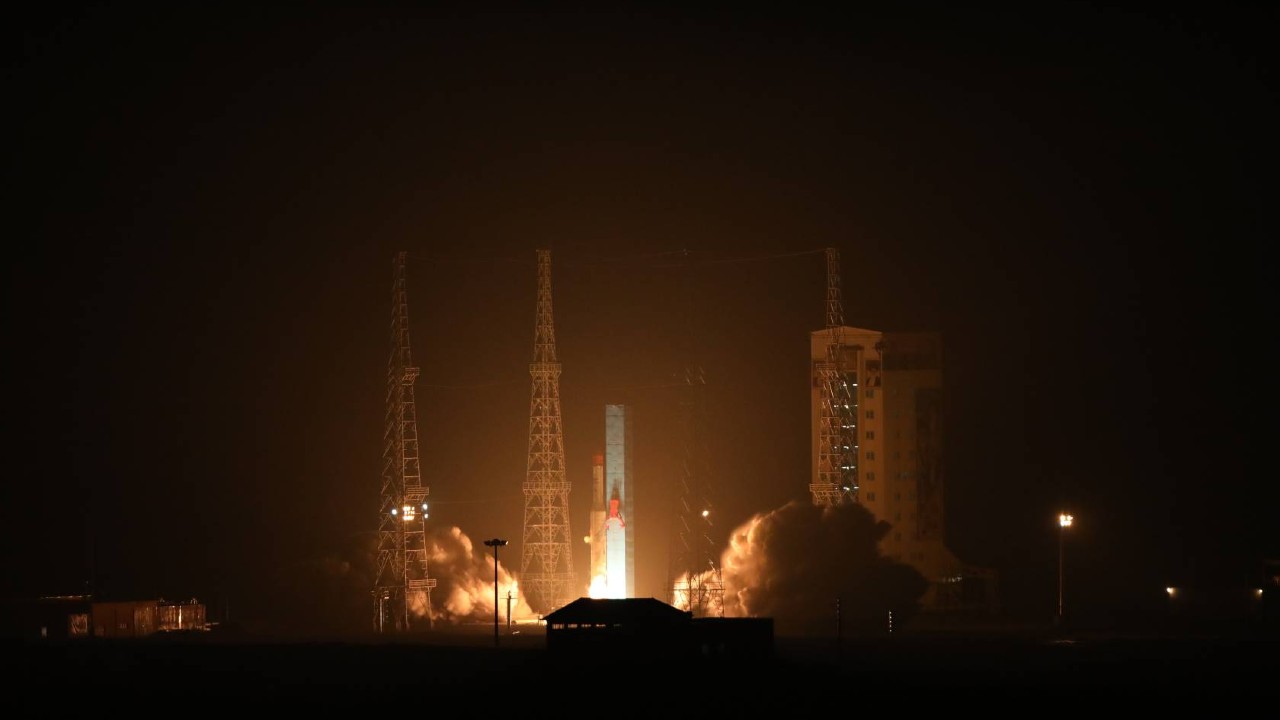Iran launches 3 satellites on Simorgh rocket's 1st successful orbital launch
The launch was immediately condemned by several Western nations.

Iran launched three satellites simultaneously amid regional conflicts that involve what Western governments say are Iranian-backed militia groups.
Iran's Secretariat of the Government Information Council announced the launch in a statement Monday (Jan. 29). The satellites were launched atop one of the nation's Simorgh rockets and reached low Earth orbit, with each satellite's altitude ranging between 280 miles (450 kilometers) and 680 miles (1,110 km), according to the statement.
The trio of satellites consisted of two communications and navigation cubesats known as Keihan 2 and Hatef 1, and a third satellite known as Mehda. That latter spacecraft is described as a "research satellite" that will allow Iran's space agency to evaluate the performance of the Simorgh to inject satellites into different orbits.
This was the first successful orbital mission of the Simorgh, after a series of failures.
Related: Iran launches 'bio-space capsule' protoype, aims to fly astronauts by 2030
The launch marks the second time Iran has put a satellite in orbit this month. On Jan. 20, the nation put a satellite known as Sorayya into the highest orbit Iran has reached yet, reaching 466 miles (750 km) into low Earth orbit, according to Reuters. It remains unclear what Sorayaa's function is, although confirmed reports state it is capable of remote sensing.
That launch was immediately condemned by several Western nations, which have long accused Iran of using satellite launches to further the nation's long-range ballistic missile program.
Breaking space news, the latest updates on rocket launches, skywatching events and more!
"We have longstanding concerns over Iran's activity related to ballistic missile technologies that are capable of delivering nuclear weapons," a statement from France, Germany and the United Kingdom read, according to the Associated Press. "These concerns are reinforced by Iran's continued nuclear escalation beyond all credible civilian justification."
These two recent Iranian launches come as tensions and conflicts continue to flare up throughout the Middle East. Israel and Gaza have been in a bloody conflict that has claimed the lives of tens of thousands that began with a terrorist attack on Israeli soil on Oct. 7, 2023.
For weeks, Iranian-backed Houthi rebels in Yemen have been hijacking and launching missiles at internationally flagged commercial vessels and tanker ships in the Red Sea.
On Jan. 28, Iraqi militias supported by Iran carried out a deadly attack in Jordan that killed three U.S. military service members and wounded dozens of others. President Biden has vowed a U.S. response to the attacks.

Brett is curious about emerging aerospace technologies, alternative launch concepts, military space developments and uncrewed aircraft systems. Brett's work has appeared on Scientific American, The War Zone, Popular Science, the History Channel, Science Discovery and more. Brett has degrees from Clemson University and the University of North Carolina at Charlotte. In his free time, Brett enjoys skywatching throughout the dark skies of the Appalachian mountains.
